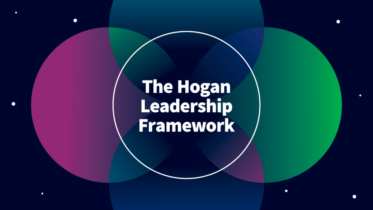Welcome back to “Positive Leadership Traits Unveiled” series, where we explore the multifaceted dimensions of personality through the Hogan Personality Inventory (HPI). In this sixth instalment, we turn our focus to the Inquisitive scale. We’ll uncover how this trait can both drive creativity and present unique challenges for professionals in leadership and HR roles.
What Is the Inquisitive Scale?
Inquisitive measures an individual’s curiosity, imagination, and openness to new ideas. It reflects how much a person enjoys exploring novel concepts, thinking creatively, and seeking out intellectual challenges.
- High scorers are often seen as innovative and visionary
- Low scorers may be more practical and grounded, focusing on concrete solutions.
Embracing the Full Spectrum with Hogan HPI
While many assessments highlight the benefits of being curious and imaginative, the Hogan HPI provides a balanced view, revealing both the strengths and potential pitfalls of Inquisitive. This comprehensive perspective allows organizations to understand how this trait impacts problem-solving, strategic planning, and adaptability.
High Inquisitive: The Curiosity-Fuelled Visionary
Strengths
- Creativity and Innovation: High Inquisitive individuals excel at generating new ideas and approaches, driving innovation within the organisation.
- Strategic Thinking: Their ability to see the big picture enables them to anticipate future trends and opportunities.
- Intellectual Curiosity: A strong desire to learn and explore can lead to continuous improvement and personal growth.
Challenges
- Distractibility: An abundance of ideas may lead to a lack of focus, causing projects to remain unfinished.
- Overcomplication: They might overlook simple solutions in favour of more complex ones, leading to inefficiency.
- Resistance to Routine: A dislike for repetitive tasks can result in neglecting essential but mundane responsibilities.
Consider: Could your endless quest for new ideas be causing you to lose sight of immediate goals? Are there practical steps you might be overlooking?
Coaching Tips for High Inquisitive
- Prioritise and Focus
Channel your creativity by setting clear priorities. Focus on a few key projects to see ideas through to completion before moving on to new ones.
- Balance Innovation with Practicality
Before pursuing a novel idea, evaluate its feasibility and potential impact. Balancing imagination with practical considerations ensures resources are used effectively.
- Embrace Routine Tasks
Recognise that routine tasks are essential for implementing your visionary ideas. Incorporate them into your schedule to maintain momentum and achieve results.
Low Inquisitive: The Reliable Implementer with Focused Energy
Strengths
- Action-Oriented: Low Inquisitive individuals excel at implementing plans and getting things done efficiently.
- Reliability: Their focus on proven methods ensures consistency and dependability in their work.
- Attention to Detail: A preference for concrete information leads to thoroughness and accuracy.
Challenges
- Resistance to Change: A reliance on traditional approaches may hinder adaptability and innovation.
- Limited Creativity: They might struggle to generate new ideas or solutions, potentially missing opportunities for improvement.
- Short-Term Focus: An emphasis on immediate tasks can result in overlooking long-term strategic planning.
Reflect: Is there someone on your team who excels at execution but resists new ideas? How can their strengths be leveraged while encouraging openness to innovation?
Coaching Tips for Low Inquisitive
- Foster Openness to New Ideas
Challenge yourself to consider alternative approaches. Participating in brainstorming sessions can stimulate creative thinking.
- Embrace Continuous Learning
Engage in professional development opportunities to expand your knowledge and adaptability. Learning new skills can enhance both personal and organisational growth.
- Balance Execution with Exploration
Allocate time for strategic thinking and long-term planning. This can lead to more comprehensive solutions and prevent future challenges.
Stay Connected
Our exploration of personality’s multifaceted nature is nearing its conclusion. In our final article, we’ll delve into the last dimension of the Hogan HPI, Learning Approach, revealing how understanding these traits can shape leadership effectiveness and organisational success.
Ready to Optimise Your Team’s Potential?
Do not limit your organisation’s potential by overlooking key personality insights. Experience the full spectrum with Hogan HPI. Contact us for more info or a consultation and discover how understanding Inquisitive can transform your organisation’s creativity and innovation.
Inquisitive
Inquisitive plays a crucial role in how we approach challenges, generate ideas, and adapt to change. By recognising both the strengths and potential pitfalls of high or low Inquisitive, leaders can tailor their strategies to foster innovation while maintaining focus and efficiency.
Remember, effective leadership balances curiosity with execution, and visionary thinking with practical application. Embracing the dual nature of Inquisitive allows you to navigate the complexities of today’s business landscape with agility and insight.
Stay tuned for the next article in our series, where we’ll unveil another key positive personality trait and continue this journey towards greater self-awareness.
Interested about the other scales, there read here:




